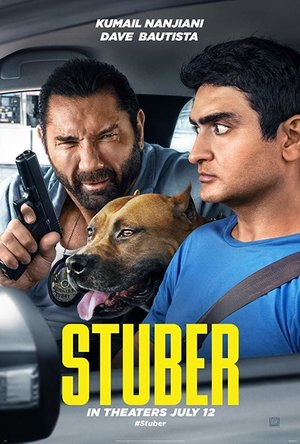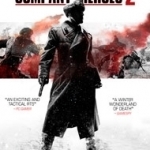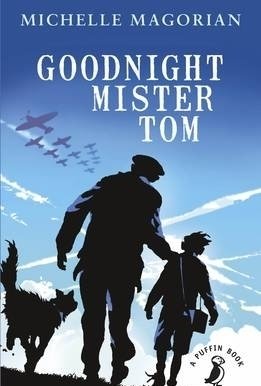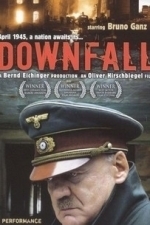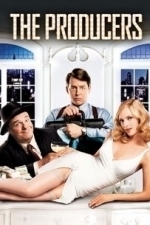
PROMT Translator Spanish-English offline
Travel and Reference
App
- Quick and high-quality translation without the internet - New “Dialog” mode for easy...

Sound Touch
Education and Entertainment
App
OVER 600,000 DOWNLOADS! JOIN THE FUN! YOUR KIDS ARE GOING TO LOVE IT! Trumpets, Harmonicas, Trains,...

BlindSquare
Navigation and Social Networking
App
BlindSquare is pioneering accessible navigation both indoors and outdoors. Know where you are, know...

Tandem - Language Exchange
Education and Travel
App
Speak any language on Tandem - the app that gets you talking in foreign languages. Tandem helps you...

République
Games and Entertainment
App
In “Episode 5: Terminus," the fifth and final episode of the thrilling République saga, battle...
Bob Mann (459 KP) rated Stuber (2019) in Movies
Sep 28, 2021
Like no other genre, comedy is highly personal and one person’s comedy gold is another person’s comedy nightmare (“Mrs Brown’s Boys” anyone?). Similarly there are some comedians that I really engage with and others that really irritate. For me, stand-up comedian Kumail Nanjiani falls into the former category. Although having had bit-part roles in many films over the last ten years, it was his starring role playing… well… basically, himself in “The Big Sick” that first caught my attention. Here he repeats that starring role and delivers a deft performance as the shy and ‘scaredy-cat’ driver making a pick-up he won’t forget in a hurry.
He’s paired here, in an unusual ‘buddy cop’/’not buddy cop’ manner, with “Spectre” bad-guy Dave Bautista, a giant of a man who displays a knack for comic delivery (albeit as the straight man) that I was not expecting.
The seeing-eye Uber man.
Bautista plays cop Vic Manning who is in an obsessive pursuit of bad-guy Oka Tedjo (Iko Uwais). Suffering from increasingly bad eyesight, Manning undergoes laser eye surgery on the very day that the “big tip-off” comes through. Being almost blind, Manning hires (read kidnaps) Stu to be his unwilling partner in a battle that puts Stu as well as Manning’s attractive artist daughter (Natalie Morales) in harm’s way.
There’s comedy to be mined in the blind cop set-up…. it’s similar in some ways to the Gene Wilder/Richard Pryor comedy “See No Evil, Hear No Evil”.
Surprisingly visceral action.
We all know that Bautista can do a good fight scene. That fight onboard a train in “Spectre“, with Daniel Craig‘s Bond, was almost on a par with the famous Connery/Shaw fight in “From Russia With Love”. Here, Bautista gets to brawl with gusto in a few scenes.
In general, the “action” in this “action-comedy” is pretty full-on and entertaining. The opening scenes in particular, with Manning and officer Sara Morris (the ever-watchable Karen Gillan) taking on Tedjo in an upper floor of a high-rise building are exciting and dramatic. This is due in no small part to the acrobatic capabilities of Iko Uwais. (Uwais is an Indonesian champion at the martial art Silat… and it shows).
Slick writing that delivers some great lines.
The script is by Tripper Clancy, with this being his first US film after penning two previous German films. And it really made me laugh a lot, both in terms of some of the set up scenes (one in an animal hospital is particularly funny) and in some of the dialogue. As an example, when pushed to the limit of his stress, Stu wails “So I’m gonna have to get cheap student therapists who quote white guys with Indian names and tell me that I should meditate. I…DO…MEDITATE!!!!”.
Also top-notch is the use of music in the film. A use of the Hollies classic “Air that I breathe” during the above mentioned Animal Hospital scene was brilliant.
Summary
Comedies need to make me laugh. This one did. Repeatedly. It even made the illustrious Mrs Movie Man laugh too. Repeatedly. As such “Stuber” comes with a “recommended” from me.
Gareth von Kallenbach (980 KP) rated Company of Heroes 2 in Video Games
Jun 19, 2019
For those that are not familiar with the series, the game task players to take command and construct various military units in an effort to seize key installations and strategic points, destroy enemy troops, and accomplish various strategic tasks. This is easier said than done as the enemy AI is extremely tenacious and adaptable and like battlefield situations, commanders are often forced to improvise and think on the fly one the unexpected happens.
This timeout the game is set in Russia and is told mainly through flashbacks during an interrogation of the disgraced Russian commander. Battles such as Stalingrad and other key elements of operation Barbosa are re-created and the initial battles are focused mainly on slowing the German advance as well as eliminating key resources that might be captured by the enemy.
As the game goes on, the weather becomes an new challenge as the fears Russian winter that proved to be so detrimental to the German forces is an element that must be contended with at all times. Players will not be able to send units on foot to capture very strategic elements or mission objectives without having them freeze to death. The solution to this problem is to have engineering units take a break from constructing buildings in order to create campfires. Players that are left out in the cold too long have a limited amount of time to reach the safety of a campfire or vehicle before they will freeze to death. Needing to ensure that the path to an objective is either stocked with appropriate amounts of fires or save for a vehicle to use is a key element to the strategic points of the game.
Being able to call in airstrikes as well as do more elaborate flanking maneuvers is definitely a high point of the game which adds to the strategy. You want to be very careful about massing your units in one place because to do so would invite an aerial or artillery barrage upon them. As in the previous games, players can take sanctuary in buildings which provides them ample opportunity to snipe at opposing targets. This is not without its limitations though as well-placed assaults including attacks with flamethrowers can soon turn the advantage into a disadvantage as troops may find themselves in a building collapsing around them.
Unlike other games of this type which are heavy on resource gathering to provide necessary funds for additional units, the game towards players points for capturing, holding, and destroying various strategic objectives. The better one does then the more units that will be made available to them. I really enjoy the heavy machine guns, mortar teams, and the cannon fodder conscripts squads, but what really makes the game shine is the ability to call in airstrikes and your armored units. As mentioned earlier about the difficulties in combat in the snow conditions. The game takes weather into account even to the point of providing hit points to the ice. An enemy that is attempting to bring across units supported by armor could be in for real surprise by strategically placed mine or a well-placed shell. Once at the ice becomes weak, then players can use this to their drainage to quickly dispatch units who fall through damage ice with a little bit of urging from their weapons.
Graphically the game shines and I really enjoy being able to use the mouse wheel to zoom into units and get an up close and personal look at them in action. Seeing them diligently go about their tasks be at construction or loading shells into their weaponry is not only beautiful to behold but adds to the sense of immersion. The sites of the game as well as the audio are spot on as key historical elements have obviously been paid attention to in the creation of this game. For example players talk about not seeing sugar in ages or how there are not enough weapons to go around and are instructed to simply head to the enemy and salvage what they can on the battlefield. There is also the element of brutality were troops are told that should you retreat from the enemy you’ll be shot and killed by your own commanders and that objectives must be completed regardless of the cost.
The game offers significant challenge to players of all levels and as such a skill level setting is in place which will allow you to try to find a happy medium for your style of play. There are also ample online opportunities for the game as not only can you play with your friends, you can create custom matches or to randomly assign matches which can pick you and other flesh and blood players up against the computer controlled opponents.
I especially like the ability to directly stream my gameplay to twitch TV as this is an element that we’re definitely looking to take advantage of in the future especially since live streaming is a key element of the upcoming gaming consoles as well .
The path finding in the game is very solid and although there are times when units can become a bit bogged down it is extremely minor especially for games of this type. The success or failure of missions relies solely upon your abilities as a commander. Sure there are times when brute force and overwhelming strength will ensure victory, but resources are at a premium on the Eastern front and players as mentioned earlier, often have to scrounge for resources from fallen soldiers on the battlefield. More than once I thought I was making short work of an enemy with a two-pronged attack only to have an extremely effective counterattack forced me into retreat and regroup mode. I learned during these times that having one unit feint toward an enemy locale wall flanking with two or more other units often worked out well. The enemy would be drawn to the one unit allowing me to get my other units behind them engaging enemy objectives for multiple sides.
This strategy works really well until you come across a machine gun nest and heavy armor which again forces you to improvise on the fly. Mortar and grenade units can do a good job at taking out a machine gun nest it positioned properly but I always found bathing area inflamed to be highly effective.
Regardless of what strategy you employ, Company of Heroes 2 is an extremely impressive and enjoyable game that not only provides plenty of enjoyment and excitement but shows that the series keeps getting better with each new installment.
http://sknr.net/2013/07/29/company-of-heroes-2/
The Bandersnatch (199 KP) rated Goodnight Mister Tom in Books
Nov 7, 2019
"Mister Tom", as William christens his new guardian, is reclusive and bad-tempered, and as such is avoided by the community. Willie lives with him as his Mother wants him to live with someone who is either religious or lives next to a church. Though initially distant, he is touched after discovering William's home-life and treats him with kindness and understanding, helping to educate him. Under his care, William begins to thrive, forming a small circle of friends at school among his classmates including fellow-evacuee Zach. He also becomes proficient in drawing and dramatics. As William is changed by Tom, so is Tom transformed by William's presence in his home. It is revealed that Tom lost his wife and baby son to Scarlatina some 40 years previously, and he has become reclusive because of this.
The growing bond between William and Tom is threatened when William's mother requests that the boy returns to her in the city, telling him she is sick. At first, William thinks this will be a good thing, as he can be helpful to his mother. However, his mother is not pleased to learn the details of his time with Tom, feeling that he has not been disciplined properly. While William has been away, she has become pregnant and had a girl, but is neglecting the baby. After a bad reunion, where his mother becomes furious upon learning the details of her son's life with Tom, abhorring his association with the Jewish Zach among other things, she hits William and puts him in the under-stairs cupboard, chains him to the piping. William regains consciousness briefly to find himself in the cupboard – he has been stripped of his clothes, minus his underwear, and his ankle is twisted. He quietly sobs for Tom, before he falls asleep.
Back in Little Weirwold, Tom has a premonition that something is not right with William. Although he has never travelled beyond his immediate locality, he ventures into London and eventually locates William's neighbourhood of Deptford and his home. He persuades a local policeman to break down the door of the apparently empty home, to be greeted with a vile stench. They find William in the closet with the baby, who had also been locked under the stairs by William's mother and has now died. William is malnourished and badly bruised as he had been locked under the stairs for a number of days. William is hospitalised, but whilst there suffers horrific nightmares and is drugged simply to prevent his screams from disturbing other children. Tom is warned that it is likely that William will be taken to a children's home, and, unable to observe William's distress any longer, kidnaps him from the hospital and takes him back to Little Weirwold.
Back with Mister Tom, William is much damaged by his ordeal and is also blaming himself for the death of his sister as he had not been able to provide enough milk to feed her whilst locked away, and becomes very depressed. Later, when his favourite teacher Annie Hartridge has a baby, William is shocked to learn from Zach that a woman cannot conceive a child on her own, and realises that his mother was having a relationship with a man, even though she had previously told him that it was wrong for unmarried couples to live together or have children together (something which society in general had regarded as unacceptable at this time). Tom is traced by the authorities, who have come to tell William that his mother is dead, having committed suicide. They also offer him a place in a children's home, as they've been unable to trace any other relatives who may have been able to take care of him. Luckily the authorities realise that William has already found a good home and allow Tom to adopt him.
Tom, William and Zach then enjoy a holiday at the seaside village of Salmouth, where they stay in the house of a widow whose sons have been sent out to war. Zach then receives news that his father has been injured by a German bomb in London and he hurries home on the next train saying farewell to all his friends. Unfortunately this is the last time they see him. William later learns that Zach has been killed and is grief-stricken for some time, but his grief is later healed by another recluse, Geoffery Sanderton. Geoffery, a young man who had lost a leg during the war and takes William for private art lessons,recognises the signs of grief and gives William a pipe to paint along with a picture of two smiling young men. One of the men is Geoffery and he tells William about the loss of his own best friend, the other man in the picture and the owner of the pipe. This is when William starts to come to terms with Zach's death. Adding to this, Doctor Little, the village doctor, who was Zach's guardian while he was evacuated, is surprised but pleased when William asks to have Zach's bike. Through learning to ride it, William realises that Zach lives on inside him and he will never forget his wonderful companion that Zach was.
In the months following, William grows closer to Carrie, one of his friends. One night, on returning home to Tom (whom he now calls "Dad"), he thinks back on how much he has changed since arriving in Little Weirwold and realises that he is growing.
Goodnight Mr Tom Wiki.
Goodnight Mr Tom was published by Kestrel in 1981 and later on in that same year in the US by Harper and Row. The book won Author Michelle Magorian the annual Guardian Children's fiction prize. Magorian was also a runner up for the Carnegie Medal. The book has been adapted as a Movie, a play and a musical. The most recent theatrical adaption won the Laurence Olivier award for Best Entertainment.
I came across the book when I was 10/11 years old. I needed the book for English at primary school, since we needed to read the book and complete a series of assignments for our teacher. I have in the subsequent years read and re-read the book. The book is rather good and I recommand it for children from the ages of 9/10 upwards. The book is a good representation of what happened during WW2 in a fictional setting. And William and Mr Tom healing each other from what they both experienced (Tom loosing family to Scarlatina and William being abused by his mother). I give the book an 8/10.
RəX Regent (349 KP) rated Downfall (Der Untergang) (2004) in Movies
Feb 19, 2019
Told in a straight forward manner, we are given a portrait of not only Adolf Hitler himself, played perfectly by Bruno Ganz, who manages to humanize him without ever apologising for his heinous acts, but also those close to him. Shown through the young eyes of his final secretary, Traudl Junge (Alexandra Maria Lara), we are given a picture of what The Third Reich was to those who believed in it as well as what it had become for those who would suffer at it bloody hands.
Directed by Hirschbiegel to put us, the audience in the anterooms with these monsters, we are placed into a complex environment, edgy, atmospheric and most of all, real, as we witness noble acts of patriotism, conscience and pure, despicable horror, none less so that Magda Geobells, with the full consent of her husband, Joseph, first drugging, then murdering their six children as they slept, rather than “let them live in a world without national socialism.”
The only redeeming factors were their eventual suicides and in terms of the film, their first rate performances throughout this harrowing scene. Corinna Harfouch, who portrays Magda manages to portray this evil woman yet convey the emotion which was subdued deep beneath the surface. No small feat to allow such a fleeting glimpse of humanity during such and inhuman act.
But the same must be said Bruno Ganz, who manages to portray Hitler with such humanity; whilst showing us the true nature of his monstrosities, highlighting that the REAL monsters live among us and can seduce us at any time, any where, especially when we are vulnerable.
During one of the film’s early scenes, Hitler and Albert Speer (Heino Ferch), his Armaments Minister, discussing his vision for The Third Reich as he looks over a model of the new Germany which would be built after he won the war, a Germany without department stores, instead focusing on art, literature and culture.
Surely a noble goal, but as we all know, this cultural hub would have been built at an unacceptable cost, mainly with the blood of those who Hitler and his cohorts deemed to be inferior.
This is one of many clever methods used to convey a fair portrait of Hitler and The Third Reich. To demonstrate how bad they were, you first have to show impartiality, pointing out the good in what they do, play devil’s advocate as it were. Because whether we like it or not, evil motives are often built upon decent goals.
But as this film demonstrates, as Hitler shows his destine for anyone, even his own people, who will not give their lives for HIS vision of Germany, his Third Reich was being eaten away by a cancer of his own making, a Germany rotting from the very top.
Downfall is without a doubt one of the best World War 2 films which I have ever seen, delivering a compelling and immersive look behind the scenes of one of the most important defeats in modern history.
But being British and having to follow this with subtitles, which was great as watching this in its native German only adds to the experience, it can be a bit difficult to keep up with every plot machination, as we spend two and half hours reading about troop deployments, tactics and the philosophy of the Third Reich as we are presented with such atmospheric work, but if you can keep up with but the text and visuals, this is one hell of an education for those who do not know and an immersive masterpiece for those who follow WW2 history.
Fred (860 KP) rated The Producers (2005) in Movies
May 27, 2019
Some of my favorite jokes from the original are just awful in this film. For example, in the original, Max says, "Well, you know what they say; smile & the world smiles with you." He then turns & looks into the camera & says, "This man should be in a straight-jacket." Crossing the 4th wall works so well. Yet, in this film, Lane says the line to a statue. During the out-takes on the DVD, we see Lane deliver the line to the camera, ala Mostel. But he stops, realizing that he's not supposed to do it the same way as Zero, but the new, lamer version. The Hitler tryouts are also ruined in comparison to the original. In the original, the man singing "Have You Ever Heard the German Band", points to the piano player & orders, "You Vill Play It!" Hilarious. In this one the same character turns & say, "Play the song, please." or something weak like that. And finally, when the man (who has become a mentally challenged man for this film) goes to sing "The Little Wooden Boy", he goes into a stupid little dance, & when he is just about to start, the director yells, "Next!" Nowhere near as funny as the original, where we see a man so sure of himself & so confident get ready to sing & then is cut off with the much funnier, "Thank you!" More problems arise with the changing of the story from the original. The main change is the omission of LSD (Dick Shawn's character). I heard they removed him as a hippie wouldn't work today. So, instead of just making him something other than a hippie, let's get rid of him & throw the character of Franz in there. Doesn't work. Then, when the play is finally put on, the director, a very homosexual Roger DeBris, comes out & sings, creating an obviously gay Hitler. And the audience then loves the show. How weak. There are other changes too, none of them good.
Now, let's get to the good points of this film. Some of the original songs are pretty good. Broderick redeems his bad acting for some good singing & dancing. Even Will Ferrel does a pretty good job. I can't say the same for Uma Thurman though, as her song is annoying & screechy! There are some funny parts in the movie, & they are all new to the story as all the original jokes fall flat (even without comparison). But there are not enough of the funny parts to save this film.
I can see how some may like the Broadway aspect of this film & I myself might have if the film itself didn't stink on the whole. So, I'll stick to the original film, this film had no reason to be made & now that I have seen it, it had no reason to be watched either.
